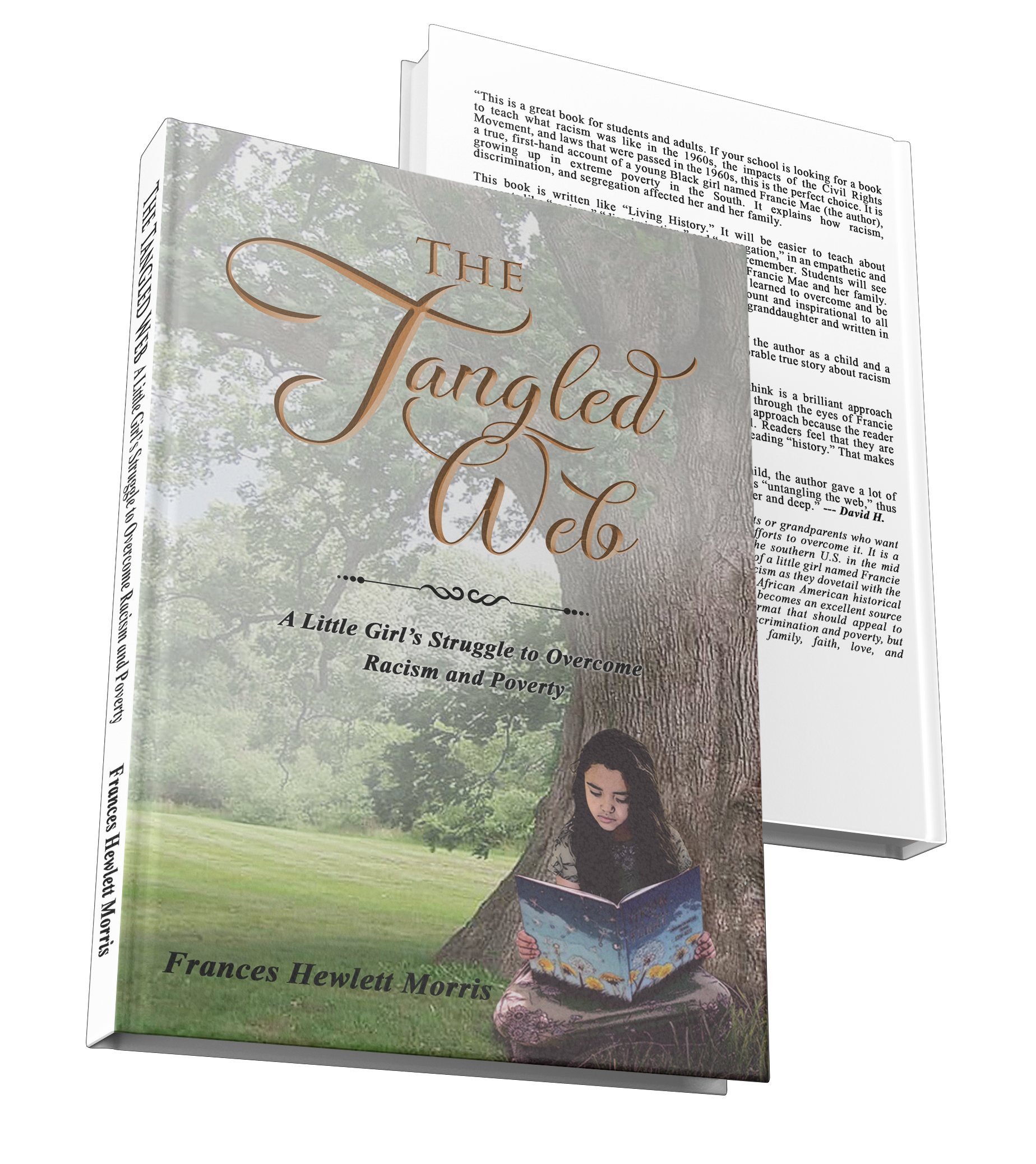BOOKS
This memoir tells the story of Francie Mae, a young girl who grew up in abject poverty in the segregated South during the Civil Rights Era. Her personal experience paralleled many poor and black families who grew up during that time.
Francie Mae’s father served in the Army during WWII. He placed his hopes and dreams in his military footlocker. He returned home to his wife and newborn son in the segregated South after he was honorably discharged. As their family grew, they moved from Mississippi to Tennessee in search of educational opportunities for their children. Once they settled in Memphis, their last child, Francie Mae, was born in the charity hospital. They lived in extreme poverty for the duration of her childhood. She and her family frequently moved in search of better opportunities. The footlocker, their constant companion, always moved with them.
Francie Mae did not understand how so many people could be impoverished, or how racism could exist, in the richest country in the nation. Her search for answers led to many more questions. She was too young to understand why.
Throughout her journey in poverty, Francie Mae’s parents helped her and her siblings understand the world around them. They had many conversations around the pot belly stove that sat in the middle of their shack. Before each conversation, their father carefully opened the lid of his old Army footlocker and thoughtfully chose a book to discuss. After the family discussion was complete, he returned the book to his cherished war chest. He then put the treasured trunk in the corner of their humble shack, under the protection of his Army blanket. His faith gave him assurance that the hopes and dreams of his family would one day be fulfilled.
It would take seventy- eight years to discover all the information he used to help guide his family out of poverty.

This book is a memoir of the author’s struggle to survive racism and poverty during the Civil Rights Era. Her mother called her Francie Mae. She and her family lived in a world that was confusing, painful and difficult to understand. She lived her entire childhood in poverty and shares her journey of survival. She was a curious child and sought answers to her many questions about inequality. She took a journey through a land showing the dark side while searching for her piece of the American dream. She learned to rely on her faith to help her navigate the rough roads ahead. She became socially conscious and advocated for justice. She prevailed! She was inspired to write the book when her young granddaughter began asking questions about race. She and many other children are living in a similar world now. Racism and poverty exists and children should know why they exist. Racism is a learned behavior and we owe it to our children to teach them it is wrong. Racism may lead to poverty. These are difficult topics to discuss, yet we owe it to our children to engage in age appropriate conversations. As they struggle to understand the world around them they may have unanswered questions. If not answered, children come to their own conclusions and their conclusions may not be correct. Parents shouldn’t remain silent. Avoiding talking about race and poverty will not make it go away. Francie Mae’s parents listened to her questions and provided answers in ways she could understand. Many ideologies were formed many years ago. The way people felt and thought became twisted together like a web. If not challenged, the web tangles more. It is time to join together and untangle the web. We owe it to our current and future generations!

